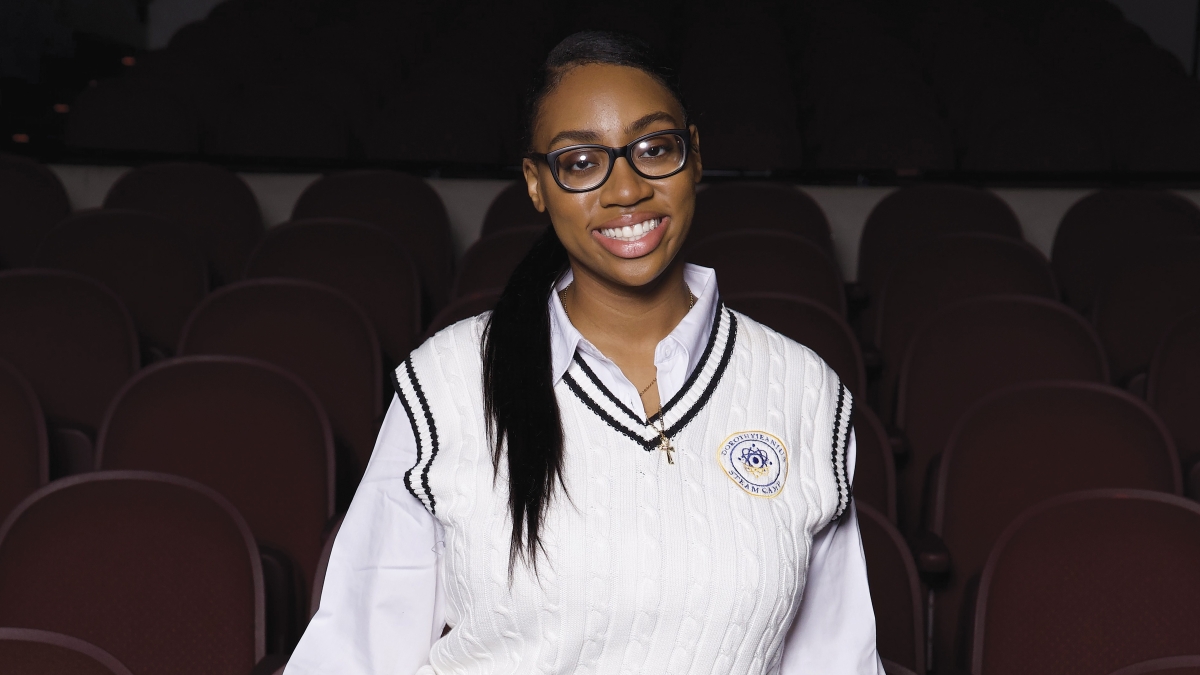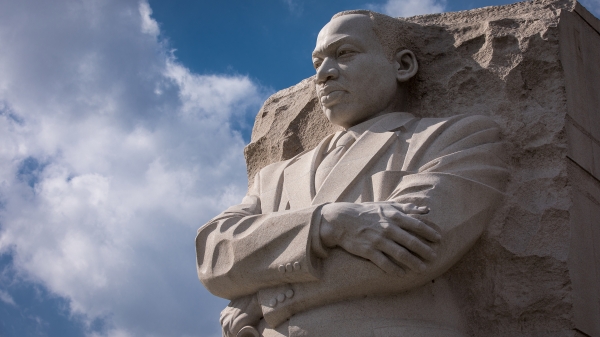Teen College of Health Solutions grad’s STEAM program helps underserved populations

College of Health Solutions graduate Dorothy Jean Tillman earned a doctoral degree in behavioral health at age 17 through ASU Online.
By Aidan Hansen
Editor’s note: This story is part of a series of profiles of notable spring 2024 graduates.
Graduating from college at age 17 is no easy feat. Doing so while heading leadership programs in multiple locations around the world? Even more impressive.
Meet Dorothy Jean Tillman II. She's taking part in commencement ceremonies this spring after completing her online doctoral degree in behavioral health from Arizona State University’s College of Health Solutions in December. She's no stranger to hard work and finding ways to get things done.
When she completed her master’s degree in environmental science from Unity College in Maine in 2020, no one would hire her. So she decided to start her own business.
“The original plan was to build a full STEAM program in South Africa, but then COVID-19 came and it wasn’t really an option anymore,” Tillman said. “So instead we built kits for them and recorded videos so they could participate along with us. After that it still felt like it wasn’t enough — I wanted something brick and mortar, and during the summer of 2020 my mom and sister helped me come up with my camp.”
Franchising her STEAM camp all over the nation is her next step, as she wants her camps to serve as many people as they can.
Helping students is in Tillman’s nature. During her doctoral program with ASU Online, her dissertation covered the stigma surrounding mental health in college settings and efforts to help students understand the resources available to them.
“When students came in to talk to me about how they were feeling (for her dissertation research), they felt like they were forced to talk. Then when they left, they had their goal in mind,” Tillman said. “They became more talkative and aware of what's going on their campus and aware of their peers and having less stigma through being aware of what their peers are going through.”
Question: What was your “aha” moment when you realized you wanted to study the field you majored in?
Answer: I chose integrated behavior health because it only made sense from a perspective of growing fields and creating jobs and opportunities, as opposed to finding a job. Those were two good choices because mental health is very big, for lack of a better word, these days.
Q: Why did you choose ASU?
A: The online part was a big part of what led me to ASU. I was also letting my mother guide that process because she knows what's best and I was following her lead. When she suggested ASU and showed me their programs, I was like, 'This seems like the perfect choice.'
Q: What’s something you learned while at ASU — in the classroom or otherwise — that surprised you or changed your perspective?
A: I learned a lot about protocols and professionalism from the perspective of repetitiveness. Having to repeatedly use certain language or having to repeatedly do certain things, especially having an in-person internship to complete my degree.
Q: Which professor taught you the most important lesson while at ASU?
A: Dr. Lesley Manson kept me feeling like what you're doing is important. It's something that the world needs, and it's important to be dedicated to it. She inspired me to stay dedicated to specifically integrated behavioral health.
Q: What was your favorite spot for power studying?
A: I feel like it's very important to make your bedroom a place that you want to come home to. It's also really important not to spend all your time there so that it doesn't become a place that your brain can't relax. There's a park that's close to me that's called Maggie Daley Park. And it's a peaceful park, it has flowers, it has like grassy areas where you could lay out a blanket and sit.
Q: What’s the best piece of advice you’d give to those still in school?
A: Use the resources that your college gives you. They're not trying to fight against you; they really want you to graduate.
Q: What are your plans after graduation?
A: My plans are definitely to stay working with youth and to go into communities that are youth-based. So whether it is a school or whether it is just a place that has youth-based programming and things like that and works on integrated behavioral health programming.
Q: If someone gave you $40 million to solve one problem on our planet, what would you tackle?
A: I would put a bunch of integrated behavioral health programs in schools.
More Sun Devil community

ASU names 2025 MLK Servant-Leadership Award recipients
The 2025 honorees have been named for Arizona State University's annual MLK celebration awards.The four awards — community, faculty, staff and student — recognize leaders who dedicate themselves to…

Comeback falls short, but Sun Devils can hold heads high
With 10 minutes left in the fourth quarter of Wednesday’s Peach Bowl, the Arizona State Sun Devils trailed the Texas Longhorns by 16 points.Reality, it seemed, had set in.ASU’s unexpected,…

7 words that define ASU quarterback Sam Leavitt: 'How great do you want to be?'
On a small whiteboard affixed to the outside of Sam Leavitt’s refrigerator are seven words:“How great do you want to be?”They are more than a question to Leavitt. They are a challenge. And they are…